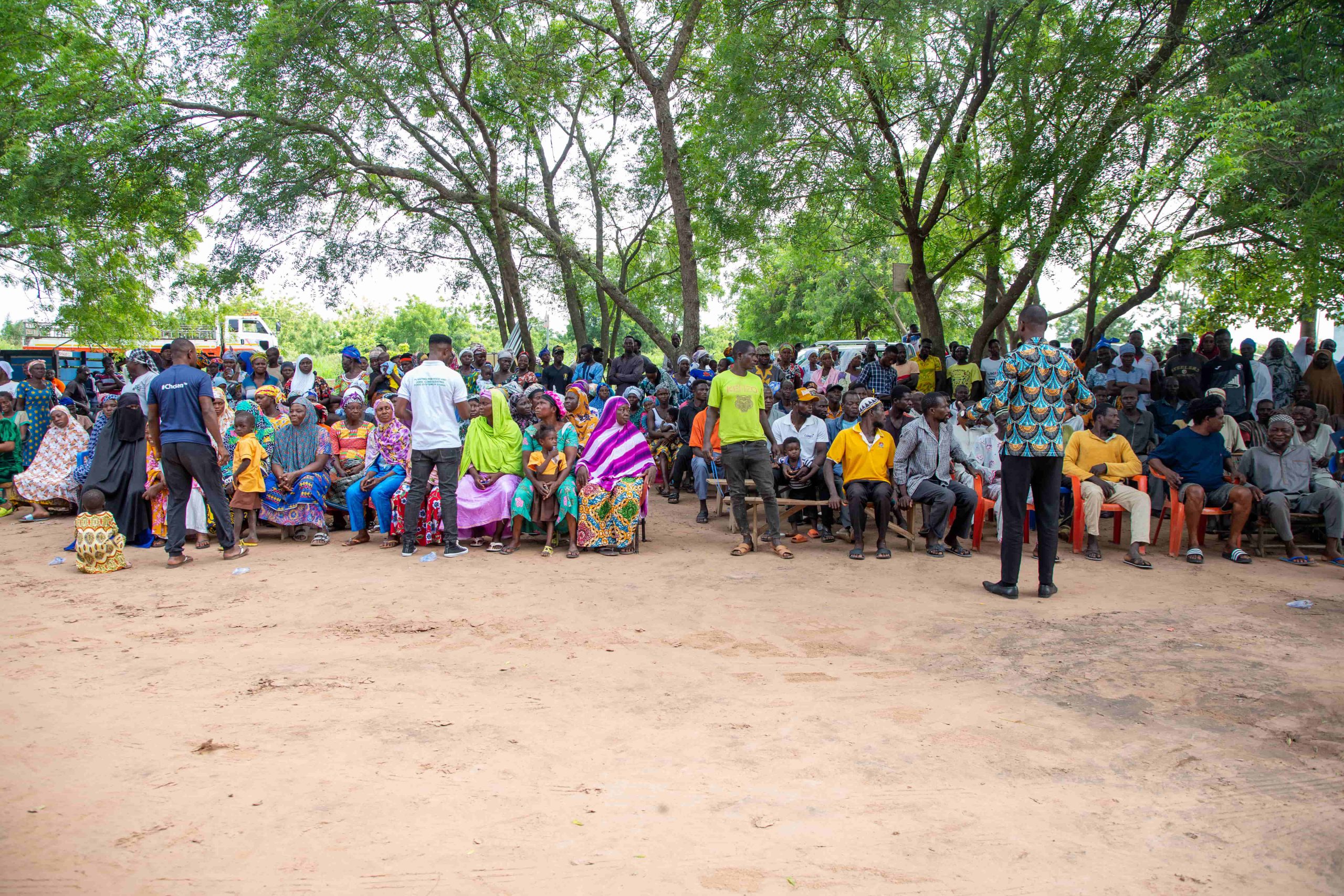On Tuesday, 24th June 2025, the quiet rural communities within the Samso–Abotantire Zone buzzed with renewed energy and purpose as they hosted a model training for the pilot phase of the livestock development programme. The event, held from 9:00 AM to 12:00 PM, brought together farmers from Samso, Abotantire, Taasen, Saagibre, Mossi Panin, and Bosomfour for an impactful session centered on improving animal health and livestock productivity.
A Collaborative Effort for Rural Transformation
The training was not just a milestone for the communities but also a testament to strong collaboration. The event was graced by key stakeholders including a team from Farming in Africa, the District Director of Agriculture and Staff, the Honourable Assembly Member for the Electoral Area, veterinary officers from the district, and respected chiefs and elders from the six participating communities. Their presence underscored the importance of inclusive, grassroots-driven agricultural development.
Building Capacity with the Animal Health Model
At the heart of the session was the Animal Health Model—a proven framework for preventing common livestock pests and diseases. Led by facilitators from Farming in Africa and veterinary officers, the training equipped farmers with practical knowledge on animal health management, recognizing early symptoms of diseases, and adopting preventive practices that align with modern veterinary standards.
The enthusiasm was palpable as farmers eagerly engaged in discussions and demonstrations. Many shared real-world challenges they face on their farms, and the facilitators provided hands-on solutions tailored to their local context.
Impressive Turnout and Inclusive Participation
A total of 277 livestock farmers attended the training—170 men and an inspiring 107 women. The high female participation highlights the growing role of women in Ghana’s agricultural landscape and the inclusive vision of the programme.
This remarkable turnout is a clear indicator of the community’s hunger for knowledge and their commitment to improving livestock farming as a sustainable livelihood.
Addressing Concerns and Fueling Hope
One of the most powerful moments of the day came during the Q&A session. Farmers raised vital concerns about disease outbreaks, access to veterinary services, and feeding practices. These were candidly addressed by the District Director of Agriculture, Veterinary Officers, and Project Coordinator from Farming in Africa.
The session also shed light on the government’s Feed Ghana Programme, with a special focus on the livestock component. For many participants, this was their first deep dive into the programme, and their excitement was evident. They left not only with new knowledge but also with a sense of being seen and supported.
Looking Ahead
The training session at Samso–Abotantire Zone marked the culmination of a pilot programme that has sparked hope and transformation in rural livestock communities. With continued collaboration and capacity-building, initiatives like these will serve as the bedrock for a more resilient, productive, and inclusive livestock industry in Ghana.
Farming in Africa remains committed to walking this journey with rural farmers—empowering them with the tools, knowledge, and partnerships they need to thrive, thanks to an impactful partnership with GIZ that enables us to reach farmers at the grassroot level with the needed knowledge and skillset for development in the livestock sector.
